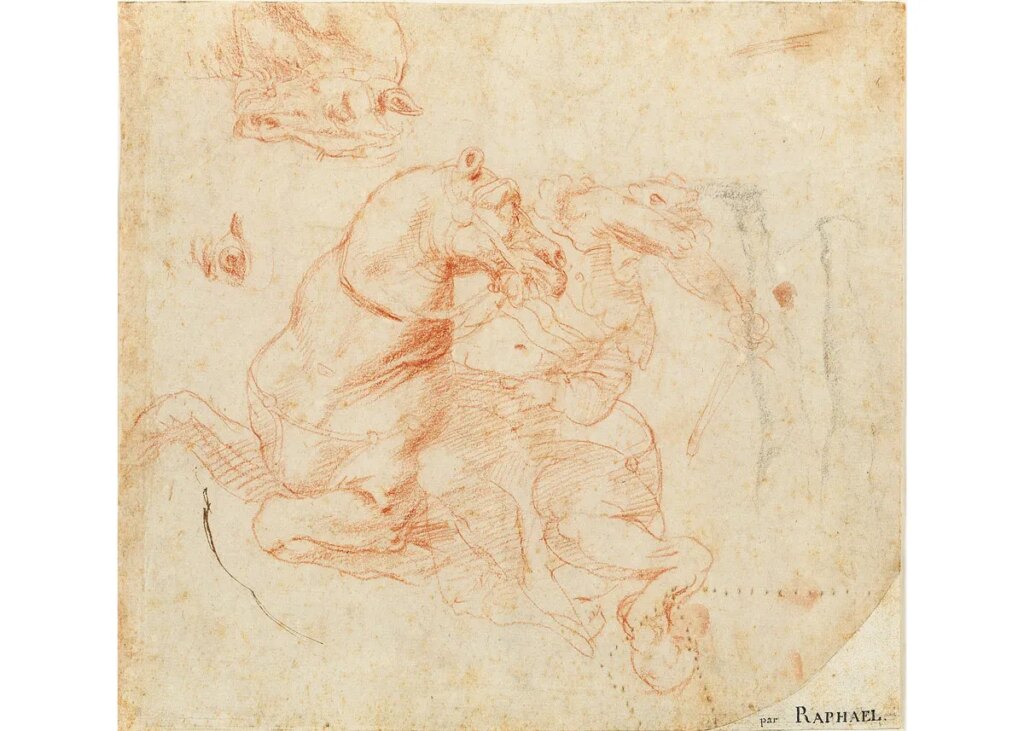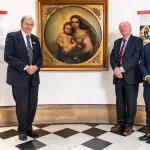
Dorotheum, the European auction house based in Vienna, will offer a drawing that has recently been attributed to Renaissance master Raphael as part of its Old Masters auction next month. The news was first reported by the Art Newspaper.
The work on paper, executed in red chalk, is a study for a fresco in one of the four rooms that Raphael (also known as Raffaello Sanzio) and his workshop completed at the Vatican as part of the papal apartments, beginning around 1508 to 1509. Raphael was commissioned by Pope Julius II, who died in 1513. at the time of his death, only two rooms had been completed; Julius II’s successor, Pope Leo X, continued the program.
Showing a man riding a horse, the study was for the fresco, The Battle of the Milvian Bridge (1520–24), which was painted in the Hall of Constantine. In the final fresco, the man and his horse are just to the right of the work’s composition, facing a horse-mounted Constantine, above whom gather a group of angels.
That room’s cycle was the last to be completed among the four and was finished by Raphael’s workshop after the master’s death in 1520; Giulio Romano is credited with creating the final painting according to Raphael’s specifications, according to Dorotheum. In a release, Dorotheum said, “The drawing of this group in the composition, illustrates however how closely Raphael himself was involved in the design of the commission which crowns his achievements in the Vatican Palace.”
The Hall of Constantine depicts various scenes from the life of the Roman Emperor Constantine, who legalized Christianity in 313 with the Edict of Milan and convened the Council of Nicaea in 325, which solidified Christian doctrine. In essence, the room’s cycle are meant to “testify to the defeat of paganism and the triumph of the Christian religion,” according to the Vatican Museums. The other three frescoes depict The Vision of the Cross, The Baptism of Constantine, and The Donation of Rome.
The drawing is only one of three surviving drawings for The Battle of the Milvian Bridge fresco; the other two are held in the collections of the Louvre in Paris and Ashmolean Museum in Oxford, England. The drawing, which had previously been attributed to 17th-century Flemish painter Peter Paul Rubens, carries an estimate of €400,000 to €600,000 ($422,000–$633,00).
In a statement, Mark MacDonnell, the house’s Old Master specialist said, “Compositional and stylistic details confirm that this is a preparatory study by Raphael for the celebrated fresco. It has an energy, a verve, a movement, and a quality which make this sheet an outstanding rarity.”


